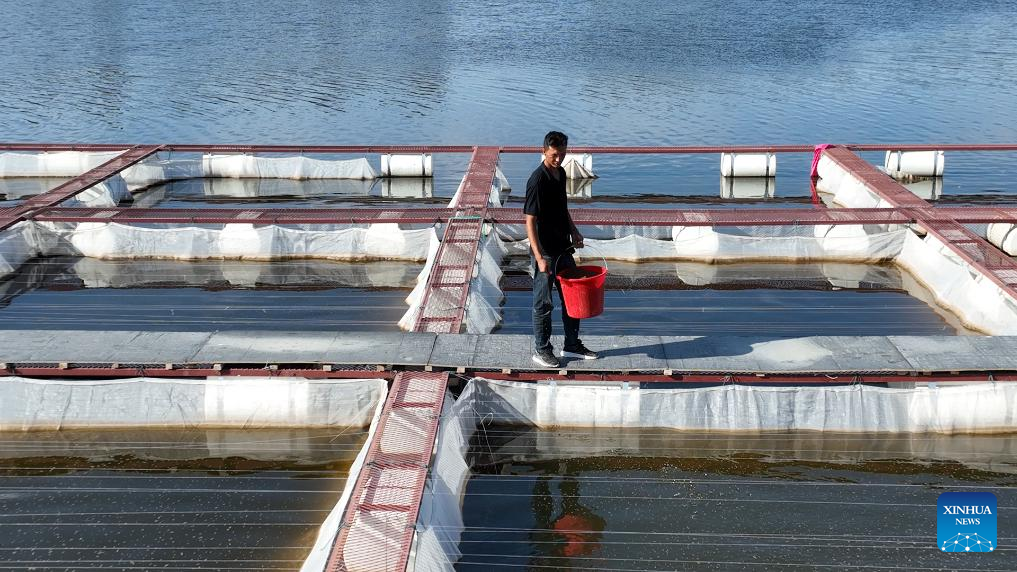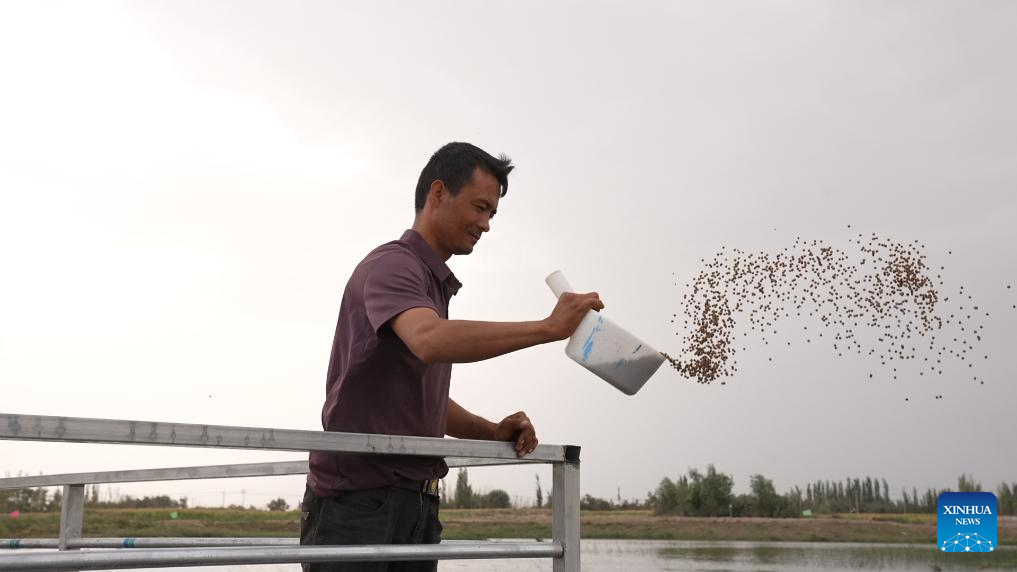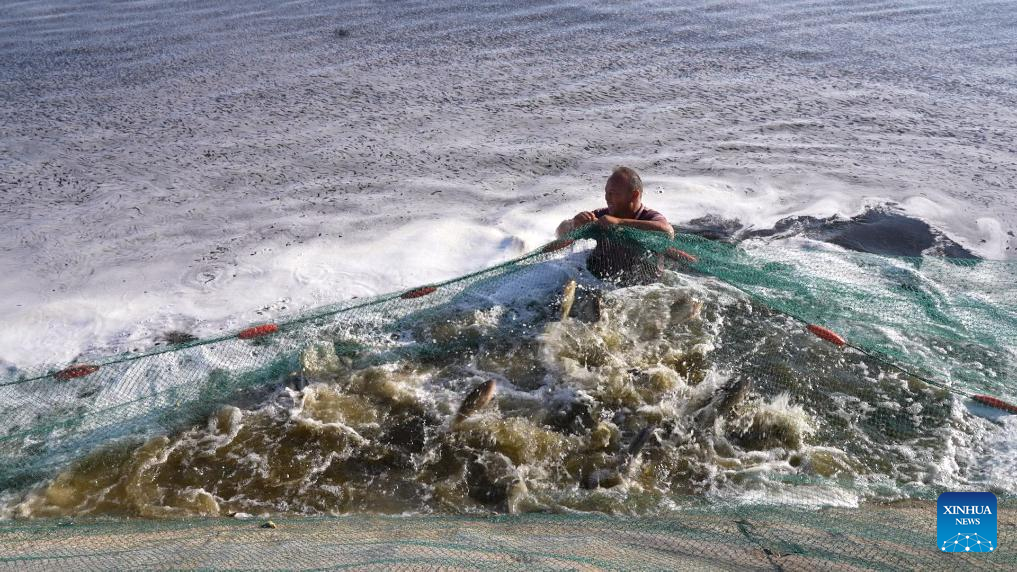
In this photo taken with a mobile phone, a fisherman tends fish ponds at Hongqi Farm owned by the Xinjiang Production and Construction Corps in northwest China's Xinjiang Uygur Autonomous Region, Sept. 21, 2023.(Xinhua)
URUMQI, Dec. 16 (Xinhua) -- In northwest China's Xinjiang Uygur Autonomous Region, which is over a thousand miles away from the coast, a farm cultivating saltwater fish is redefining the local understanding of seafood and fisherman.
Ylam Wumar is a farmer in the city of Atux. He tends a small number of fields alongside his wife. He is also a fisherman at Hongqi Farm, where he evaluates the conditions of ponds and feeds saltwater tilapia, which have adapted to the local saline-alkali water.
"The work is not very demanding so I can have lunch with my wife at home," he said. "It gives me an extra yearly salary of 36,000 yuan (about 5,000 U.S. dollars) to complement my corn and wheat harvest, which brings in 30,000-40,000 yuan a year."
The 42-year-old Uygur farmer got his fishing job after Hongqi Farm began a bold experiment to raise saltwater fish in saline-alkali water. Flowing in abundance from a nearby valley, the salty water has long been seen as unusable wastewater.
With the assistance funds from south China's Guangdong Province, the farm has managed to fertilize the saline-alkali water naturally to simulate a marine water environment, and it has built an automatic purification system that allows the water to be reused.
Saltwater seafood options from prawns to lobsters have been piloted since last year, and tilapia were found to be both profitable and easy to cultivate for beginners. The farm then built 67 hectares of fishponds, raising 650,000 tilapia since late May and realizing an output value of approximately 8 million yuan.
In recent months, the "Xinjiang seafood" label has soared to prominence on China's social media, stirring discussions on the prospects of saltwater seafood production in China's inland areas. This has shone a spotlight on several saline-alkali aquaculture farms that have popped up in the far western region.
Hongqi Farm, which is owned by the Xinjiang Production and Construction Corps, said its main goal is to improve the incomes of local farmers, and not simply to make a commercial splash.
"Our tilapia have sold out locally, and restaurants from Urumqi, the regional capital, and Beijing have contacted us hoping to source groupers," said Guo Lei, a director of the farm. "But to be honest, we're still far away from large-scale production and year-round supply."
The farm's new fishing jobs have so far increased the yearly incomes of 30 local households by 15,000-20,000 yuan each, according to Guo. The number of households is expected to double next year with the introduction of more fish categories, including freshwater snakeheads that have been reared to adapt to the saltwater environment.
"We used to barely make ends meet by growing crops on saline-alkali soil," said Piao Wenri, another fisherman at the farm. "I'm glad that they've turned the 'wastewater' into an extra source of income."

In this photo taken with a mobile phone, a fisherman feeds fish at Hongqi Farm owned by the Xinjiang Production and Construction Corps in northwest China's Xinjiang Uygur Autonomous Region, Sept. 21, 2023.(Xinhua)

In this photo taken with a mobile phone, a fisherman catches fish at Hongqi Farm owned by the Xinjiang Production and Construction Corps in northwest China's Xinjiang Uygur Autonomous Region, Sept. 21, 2023.(Xinhua)









